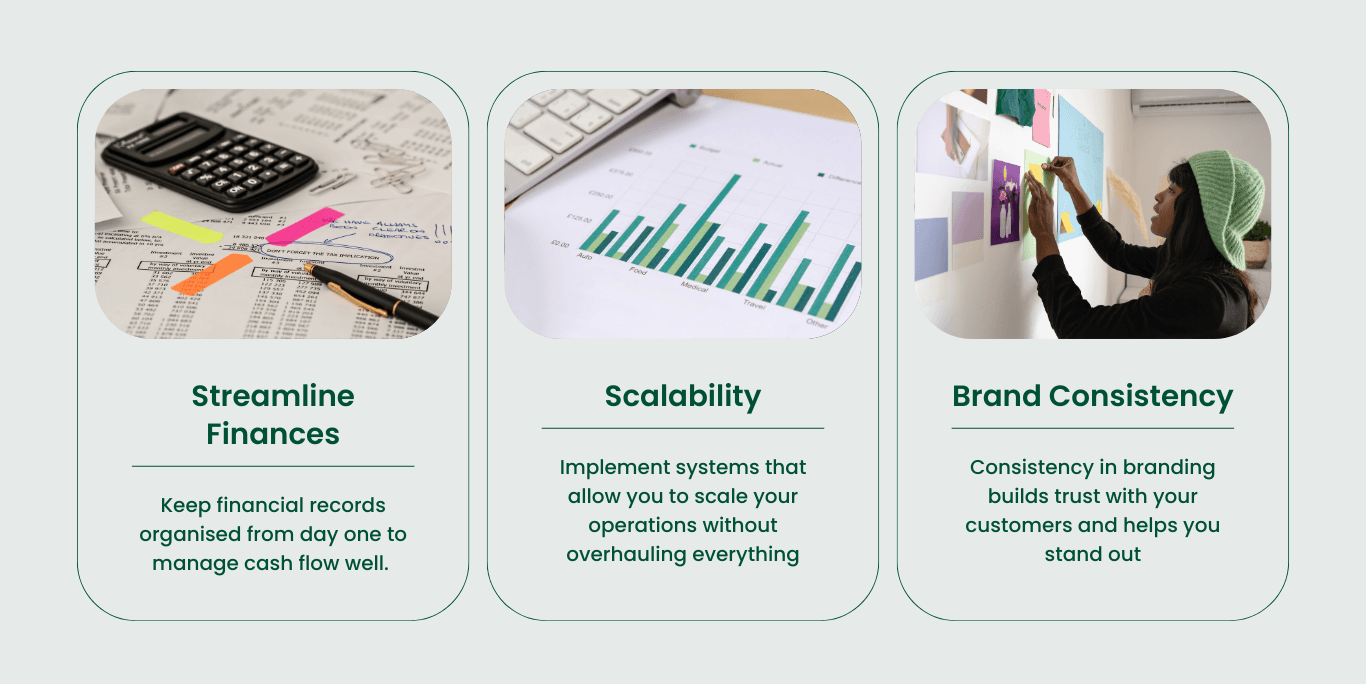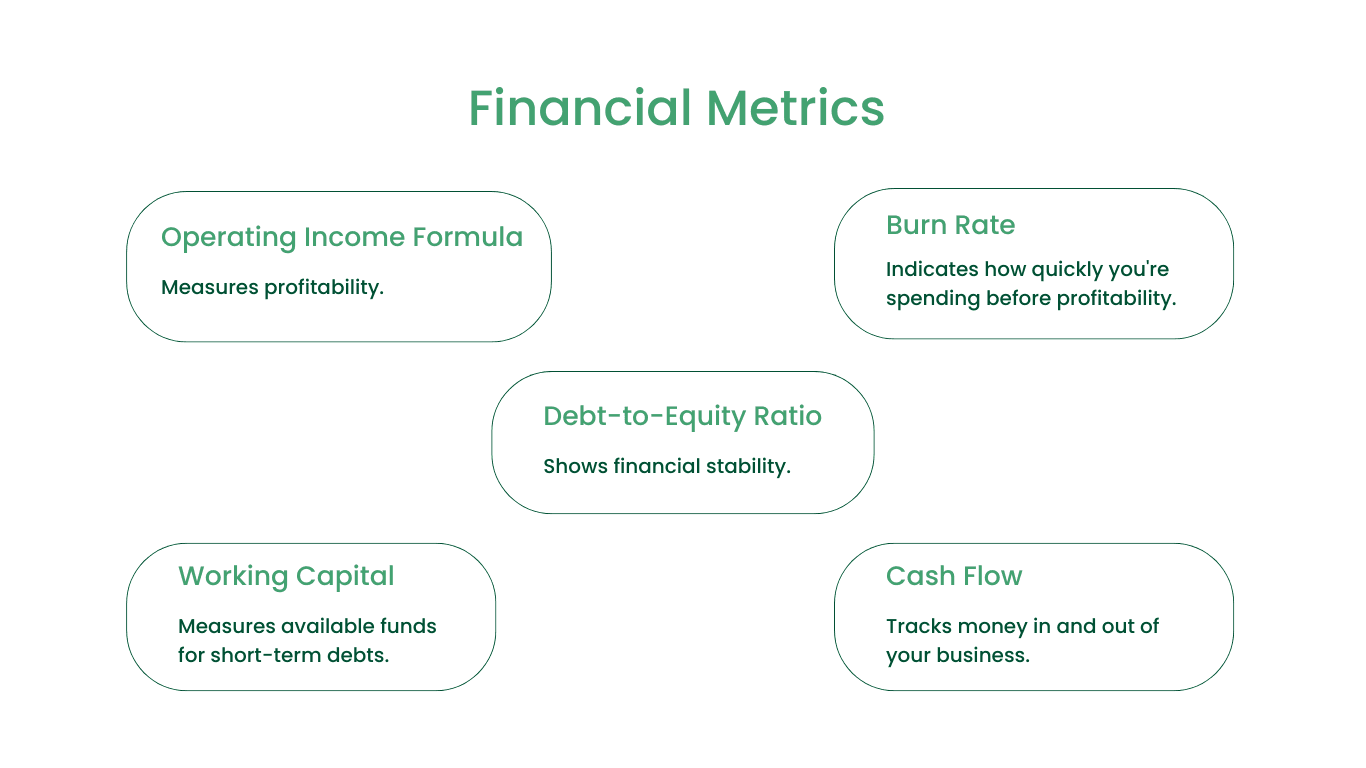Did you know there are about 41 million solopreneurs in the US alone? If you’re part of this team, it’s expected to face hurdles you don’t know how to jump just yet. One of the most significant hurdles in solopreneurship is managing all aspects of the business single-handedly, from bookkeeping for small businesses to marketing, product development, and customer service.
But with strategic planning, dedication, and the right tools, you can turn your one-person venture into a thriving business. So in this blog, let us help you through the 10 steps you need to take to build a business empire out of your one-man company!
What is solopreneurship?
A solopreneur is a person who runs their business alone, managing the administrative, organizational, and managerial tasks without any partners or other employees who share the company’s risks. They usually focus on offering a niche and pay themselves, so they do not need to manage payroll.
Fun fact: Our founder, Romeo Bellon, started Receiptor AI as a solopreneur!
How to be a solopreneur?
Learning how to grow your business as a solopreneur can be confusing if you don’t know where to start. But in this blog, we’ve broken down the process for you into 10 steps. Here’s how you can take your small business to great heights:
1. Define your goals and vision
Every successful business starts with a clear vision. As a solopreneur, having a "north star" is essential to guide your decisions and keep you focused on your goals. Start by defining your long-term business goals and break them down into smaller, actionable steps.
Ask yourself:
- What is the ultimate mission of my business?
- Where do I see my business in five years?
- What are the short-term goals that can lead me there?
2. Lay a strong foundation [finances, scalability, brand consistency]
Like any building that stands the test of time, your solopreneurship success depends on how strong you lay your foundations. Yes, we’re talking about finances, scalability, and the consistency you throw into your brand image.

Here is how you can lay a strong foundation for process optimisation:
- Streamline your finances: Organise your financial records and accounting from day one so everything is accounted for. Utilise accounting software to automate your financial reporting and save money and human resources in the long run!
- Build with scalability in mind: When starting as a one-person team, consider the future. Implement systems that allow you to scale your operations without overhauling everything
- Create brand consistency: Establish your brand’s tone, style, and voice from the get-go. Consistency in branding builds trust with your customers and helps you stand out in a crowded market.
3. Expand your offerings strategically [diversification and think global, act local]
As your business grows, consider diversifying your offerings to align with your brand and customer needs. Diversification can mitigate risks, increase revenue streams, and create growth opportunities.
Here are our best tips when it comes to expanding your offerings:
- Don't offer a new product or service because it seems like a good idea. Research your audience and understand their needs to ensure there’s demand for your new offering.
- While the internet allows you to reach a global audience, never forget the importance of local engagement. Tailoring your offerings to local markets will create a loyal customer base that paves the way for sustainable growth.
4. Leverage your network
No matter how talented and hard-working you are, you cannot build a business in isolation. That’s why you’ll need to step up as a social butterfly and leverage your network to find potential clients and partners, get your name into rooms with potential for your growth and gain advice from people who’ve gone through what you’re currently going through!

5. Outsource strategically
One big mistake people make in entrepreneurship is undermining the importance of their time. Time is your most valuable asset, and you must begin to consider outsourcing tasks that aren’t part of your core competencies. This lets you focus on high-level strategic activities like growth planning while still ensuring that daily tasks get done efficiently.
Tip:
- When you begin outsourcing, make sure to keep track of these expenses so that your year-end bookkeeping for small businesses isn’t a confusing mess!
- Upwork is a popular platform for outsourcing specific business operations, such as Copywriting, Email Marketing, and lead Generation.

6. Make data-driven and sustainable financial decisions
Financial discipline is the backbone of any successful business. If you don’t play your cards right, it’ll be hard to grow as a solopreneur. This means regularly tracking your expenses and income, reviewing your financial health, and reinvesting profits strategically!
It also means you’ll need to actively track KPIs such as cash flow, profit margins, and even customer acquisition costs—all so you know what’s going on in your business's financial side. Accordingly, you’ll also need to adjust your resources to maximize your profits.
Sounds too much? Without an automating software, it is. But Receiptor AI can simplify your multi-faceted financial tracking, offer robust reporting features for tax preparation, and give you the insight you need for strategic financial planning.

Here are some key metrics to learn for managing your startup's financial health.
- Operating Income Formula: Measures your startup's profitability, a key indicator of success and future potential.
- Burn Rate: Tracks how fast you're spending money before becoming profitable; important for growth and financial planning.
- Debt-to-Equity Ratio: Shows how your business is funded and informs investors/lenders about financial stability or risk.
- Working Capital: Indicates how much money is available to repay short-term debts, reflecting your business's financial health.
- Cash Flow: Monitors the movement of money in and out of your business, helping you see where cash is coming from and how it's being spent.
7. Leverage digital marketing and brand storytelling
No matter what your niche is, your online presence often sets the tone for your success. And so, when you’re looking to expand your business as a solopreneur, you’ll want to leverage digital marketing and the power of a brand story.
Elements such as SEO, social media marketing, and email campaigns can reach your target audience easily, allowing you to convert customers effectively. But remember marketing isn’t just about promotions.
Tell your brand's story—what motivated you to start your business, the challenges you’ve overcome, and the values that guide your operations. Authentic storytelling resonates with customers, helping to build trust and loyalty.
8. Stay on top of industry trends
The business world constantly evolves, and staying ahead of industry trends is integral to your competitive edge. Whether adopting new technologies, shifting your marketing strategy, or tweaking your product offerings, staying informed allows you to anticipate changes and pivot quickly.
Tip: Subscribe to industry newsletters, follow thought leaders, and attend conferences or webinars to keep your knowledge up-to-date.
Here are some of our founder's favorite blogs and podcasts:
- The Hustle (A publication by Hubspot -- we love their youtube channel too)
- Founder's podcast (A podcast sharing inspirational Founder stories)
- Jason Staat's podcast and YouTube channel (Reviews on new accounting industry software)
- Indie Hackers (A newsletter featuring startup success stories and strategies)
9. Invest in personal development
Personal development goes hand in hand with entrepreneurship. As a solopreneur, your business’s success is closely tied to your growth as an individual. Invest time and resources into improving your skills, such as:
- Learning a new tool,
- Taking a new course, or
- Improving your financial literacy.
These steps can build your success as they improve your credibility as an individual!
10. Be open to change
Finally, the most successful solopreneurs are those who embrace change. Markets shift, customer needs evolve, and technologies improve. That’s where your adaptability will save you and your entrepreneurship endeavors!
Whether you’re pivoting your product line, adopting a new marketing strategy, or reevaluating your business model, be willing to change when necessary. This flexibility can make the difference between thriving and merely surviving.
Although it is easy to be influenced by the countless success stories and "best strategies" shared by CEOs worldwide, know that there is no one-size-fits-all success strategy. While every win and new milestone is worth celebrating, failures are also valuable and do not have to mean you should give up. Instead, take the lessons, adapt, and try again.
Solopreneurship with Receiptor AI
The road to solopreneurship success is hard, but it doesn’t have to be lonely. In fact, it takes a village. Whether it's networking with peers, outsourcing your responsibilities, focusing on personal development, or learning how to handle industry shifts, you’ll rely on people, software, and yourself equally!
If you need to sort your financials, let Receiptor AI help you build the business empire you’re working on. We seamlessly integrate with a range of diverse data sources, automate your financial document collection, process financial data in real-time, and streamline the pre-accounting phase. All you need to do is read the reports and make your business decision!
